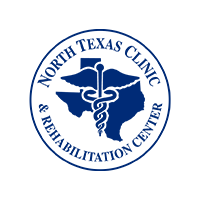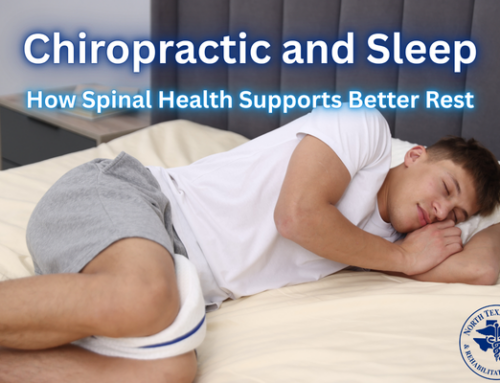If you’ve ever experienced pain or tightness in your jaw, heard clicking when you chew, or felt tension that radiates up to your ears or down your neck, you might have a common issue in the joints of your jaw. It’s a condition that many people live with, often without even realizing it. So, can a chiropractor help with TMJ disorder?
(Hint: They can!)
Instead of continuing to live with this annoying pain, find out what it is, why it happens, how your neck and spine are connected to jaw pain, and how a chiropractor can help you with TMJ.
What Is TMJ?
TMJ actually stands for the temporomandibular joint, which connects your lower jaw to your skull. These synovial joints are unique because they are both hinge and ball-and-socket joints on both sides of your face. That’s why you can move your jaw side to side, forward and backward, and open and close.
The temporomandibular joints are easy to take for granted for most of us. However, they are necessary for everything you do with your mouth, including speaking, chewing, yawning, and even kissing.
When someone says they “have TMJ,” they usually mean they have TMJ disorder (TMD or TMJD) — a condition that affects the function of the joint or the surrounding muscles. For some people, it’s a minor inconvenience that may go away on its own. But for others, it can cause debilitating pain or prevent them from completely opening or closing their mouths.
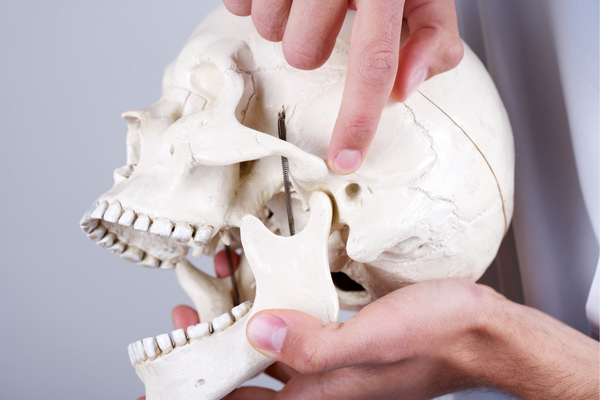
Common TMJ Symptoms
Not sure if you’re dealing with TMJ disorder? Here are some common signs to look out for:
- Pain or tenderness in your jaw or around your ears
- Clicking, popping, or grinding sounds when moving your jaw
- Difficulty or discomfort while chewing
- Jaw locking or limited range of motion
- Headaches, neck aches, or facial pain
- A sensation of pressure behind your eyes or in your temples
If you’re experiencing any of these symptoms, it’s worth getting checked out, especially if the pain is persistent or affecting your daily life.
What Causes TMJ Problems?
Similar to those between the vertebrae of your spine, there is a small cushioning disk in your jaw joints that provides smooth movement and protects the bones from rubbing together. When these disks wear down or move out of place, jaw pain and problems can occur.
However, the exact causes of TMJ disorder can be challenging to pinpoint. It may be only one or a combination of issues, some of which include:
- Teeth grinding or jaw clenching (especially at night)
- Stress and muscle tension
- Injury to the jaw, neck, or head, including whiplash and trauma from a car accident
- Arthritis or age-related degeneration
- Misalignment of the jaw or cervical spine
Chronic health conditions and habits can also increase your risk for TMJ disorders. These include smoking, fibromyalgia, and inflammatory conditions, such as IBS.
Sometimes it’s a mix of factors. For many people, chronic stress plays a big role. We don’t always realize how much tension we hold in our jaw throughout the day. And stress-caused habits, such as nail biting, cheek chewing, and teeth grinding, can make it worse.
Another common issue that may lead to TMJ disorders is poor posture.

How TMJ and Neck Alignment Are Connected
Your jaw doesn’t work in isolation. It’s part of a larger system that includes the head, neck, spine, and surrounding muscles and nerves. If your cervical spine (the vertebrae in your neck) is out of alignment, it can put pressure on nearby muscles and nerves, including those that affect your jaw.
Additionally, poor posture, such as slouching or craning your head forward, can cause your jaw to shift out of its ideal position. This misalignment may cause the muscles that control your jaw to overwork or tighten unevenly, leading to pain and dysfunction over time.
Can a Chiropractor Help With TMJ?
Yes, chiropractors can absolutely help manage TMJ pain.
By gently adjusting the spine and addressing misalignments in the neck and jaw, chiropractic care helps relieve pressure on nerves and muscles that contribute to TMJ discomfort. Chiropractors can also help restore balance to the muscles surrounding your jaw and teach you ways to prevent further irritation to the joint.
At our clinic, we take a whole-body approach. We’ll assess not only your jaw but also your posture, neck alignment, and muscle tension, so that we can treat the root cause of your discomfort, rather than just the symptoms.
When Should You See a Chiropractor for TMJ?
You should consider visiting a chiropractor if:
- Your jaw pain is persistent or worsening.
- You often hear clicking or grinding in your jaw.
- You’re experiencing frequent headaches, neck pain, or facial tension.
- You’ve tried other remedies (like mouth guards or heat packs) with little success.
- You’ve been in a car wreck, had a significant fall, or experienced other types of head or neck injuries.
Even if your symptoms are mild, early treatment can help prevent long-term joint damage or chronic discomfort.
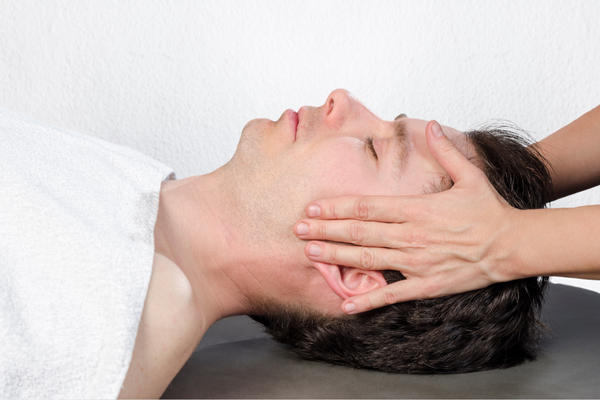
What to Expect During Chiropractic Care for TMJ
If you visit a chiropractor for TMJ-related issues, here’s what you can expect:
- A thorough evaluation of your symptoms, posture, and spinal alignment
- Gentle chiropractic adjustments, particularly in the upper spine and jaw
- Soft tissue therapy to relieve muscle tension
- Stretches and exercises you can do at home
- Education on posture and stress management techniques
Your chiropractor will tailor your treatment plans to your specific needs and comfort level.
At-Home Tips for Managing TMJ Pain
In addition to chiropractic care, there are things you can do at home to ease discomfort:
- Be mindful of posture, especially while working at a desk or using devices.
- Avoid chewing gum or tough foods when your jaw is sore.
- Apply warm compresses to the area for 15–20 minutes.
- Practice jaw relaxation exercises, such as slowly opening and closing your mouth.
- Reduce stress with breathing techniques, stretching, or meditation.
These habits can support your healing and prevent flare-ups.

A Chiropractor Can Help With TMJ Pain Today
TMJ disorders can affect your ability to eat, speak, and enjoy everyday life, but it doesn’t have to. Chiropractic care is a safe and non-invasive way to address the root causes of jaw pain, helping your body feel more balanced and comfortable.
Instead of asking yourself, “Can a chiropractor help with TMJ pain?”, reach out to schedule an evaluation. If you’re experiencing symptoms of TMJ or just want to learn more, we’re here to help. Let’s get you back to feeling like yourself again.
